Do you know that there are psychologically damaging things parents say that leave far-reaching effects on children? Yes, indeed, parents say hurtful things.
Most children are vulnerable and very impressionable when growing up. The mind of a child is very delicate and adults often inadvertently affect the inner workings of a child’s development cycle.
According to James P. Comer, a professor of child psychology at the Yale University School of Medicine’s Child Study Centre, a child’s healthy psychological development includes a good deal of self-esteem and self-awareness, with an ability to manage his or her emotions.
It is not only abuse, verbal or physical that can damage the feelings of competence and self-worth in a child, but it is also the simple things like repetitive statements and regular verbal haranguing that can damage a child irreparably.
You cannot disregard the emotions in a child and affect the way they deal with their thoughts and feelings. Your responses always affect the child in more than one way.
You should not create a false paradigm in a child that may affect him or her in times of emotional distress. Personal and interpersonal interactions ought to be rethought when it comes to parenting a child.
Take The Fun Quiz Who Was Not The Real Mother Of The Child
Here are the most common 9 psychologically damaging things parents say to their children without even realizing
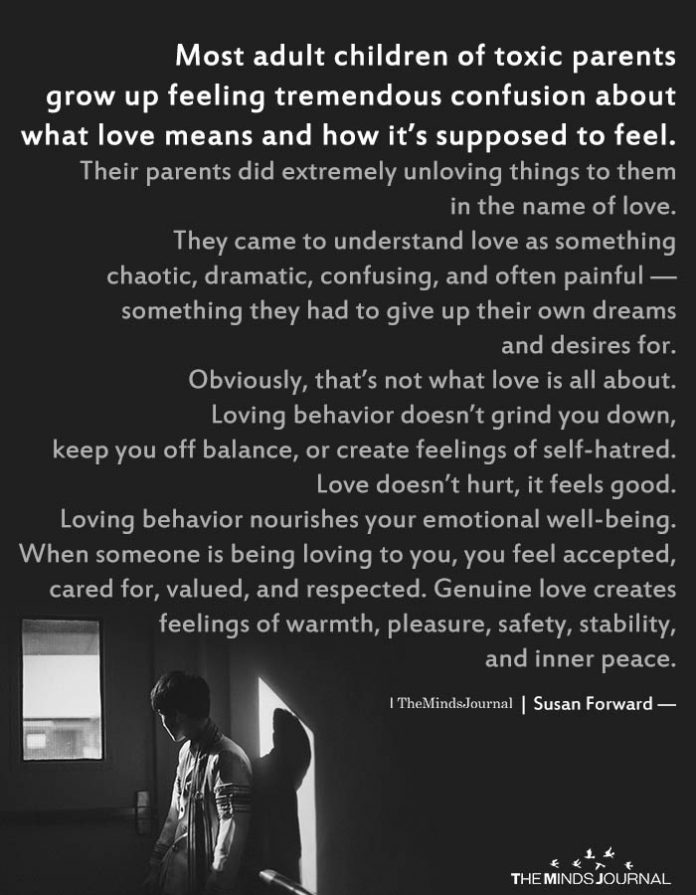
1. “You are sensitive”
You should stop telling kids that they are overreacting or are too sensitive. Our emotional coping mechanism is complex and each one is different from the other.
It is psychologically damaging to suggest to children that they should suppress their emotions. Rather, you should encourage them to understand the cause of the feelings and resolve the mental turmoil in a healthy way, allowing for sensitivity and grace.
2. “This is life”
One of the most psychologically damaging things parents say is “This is life.” This phrase is used all the time by peers and parents alike when someone is confronting bad times and emotional turmoil. As a parent, you should be able to stop evaluating the situation for the child and try to ease it instead.
Blanket statements are not too good at resolving turmoil. This could be psychologically damaging and very unnerving or upsetting for the child, making it difficult to get over this phase. You inadvertently train the child to simply accept the uncomfortable and disturbing situation as “part of life” and hinder his or her healthy outlook on life.
3. “Stop Crying!”
The Aware Parent Institute has come up with a revelation, that most children cry to not show that their hurt but the fact that they are gradually becoming unhurt. But experts suggest that we should allow the child to cry in peace for the long-term emotional peace and psychological growth.
In fact, asking a child to stop crying may be akin to seeing a cut stop bleeding on its own without medication. It may be noise that the child creates while crying, but it is an impactful experience that rids him or her of bad emotions.
4. “Because I said so”
This is a very popular response and one of the major psychologically damaging things parents say when they want to shut a child’s questions or his insistence on an answer. This kind of statement implies that the adult is always in control of the situation and any type of curiosity and questioning is very irrelevant and not worthy of any address.
This also passively tells a child that his or her internal conflicts and questions are not worth any explanation and outward exploration is unnecessary. Instead, if a child asks questions, it is imperative for the parent to comprehend and answer, understand and not dominate the child.
Do you monitor sibling bullying? Read Sibling Bullying and Abuse: Signs and Effects
5. “Why can’t you be like a cousin or a sibling and a classmate?”
Most parents fall into the trap of competition that is plaguing us in society. Every child is meant to outdo the other and come up successful in life. There are many times, that parents often compare their children to the next-door neighbor’s son or even the classmate at school.
There often lies an emotional suppression and trauma that damage their personality traits and shakes their confidence to the core. Most children are unable to develop their own personality traits and believe aping someone or even replicating their success will satisfy parents.
“Be like someone else” can be one of the most detrimental and psychologically damaging things parents say to their kids. In fact, it might be the worst thing a parent can say to a child because it implies the child is not loved as they are and they need to change themselves to earn their parent’s affection.
6. “Shut up”
One of the most commonly used psychologically damaging things parents say is “shut up”. This phrase can do a lot of damage than usual. This displays that the adult is unable to respond to the child and his queries.
He or she may just plain refuse the child when it comes to a query or a plea. This shutdown command can psychologically affect the child and quell his emotional well-being.
Are you an obsessed parent? Read How Children Of Obsessed Parents End Up Feeling Lost and Empty
7. “You are making me crazy “
This is one of the unhealthy and psychologically damaging things parents say without being aware of its repercussions. This phrase uses guilt in a child to motivate him or her to change behavior.
Our kids may be driving us crazy, but we should not verbalize this in an unedited fashion and worsen the thought process and the feeling of ownership in a child. Worse still, children feel they are the cause of the problems in others and develop low self-confidence.
8. “What is wrong with you?”
Another one of the psychologically damaging things parents say is when they imply something is inherently wrong with the child. This phrase also typically uses shame to motivate and rid a child of his behavioral nagging.
These shame-inducing phrases are a mirror of our complex moods and expectations as parents but can adversely affect a child’s comprehension.
9. “You better_____ or else!”
Last but not least in our list of psychologically damaging things parents say is “You better..or else!”. This phrase is a typical example that uses fear to bring about change in a child. Children can read all this pretty easily and with time, find a reason for this refrain.
The problem starts when they grow up and use this go-to strategy themselves. The phrase is most likely going to erode the respect between kids and their parents.
Do you know that childhood trauma can have several negative effects? Read How Childhood Trauma Impacts our Physical, Emotional and Relational Health
Wrap Up
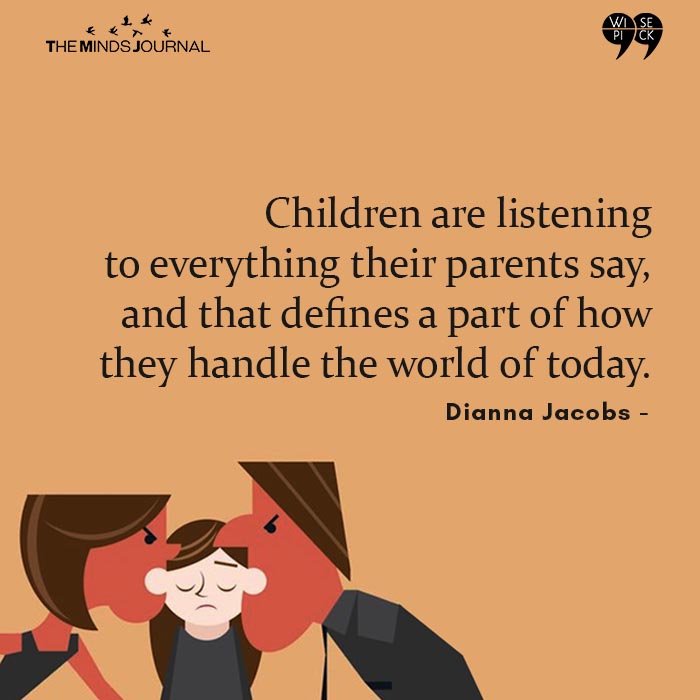
So, those were the 9 things parents should never say to their children. When dealing with kids, it makes sense to remember that they are our future and the use of psychologically damaging things parents say to them may just boomerang on us parents in no time.
No matter what his or her guilt or problem, try to focus attention on the child and not his sermons. His behavior may be awry, but his intentions are clear and therefore it is up to you to understand.
No matter what the situation, as a parent, you need to diffuse it and not verbalize abuse. So steer clear from these above-mentioned psychologically damaging things parents say to their kids.
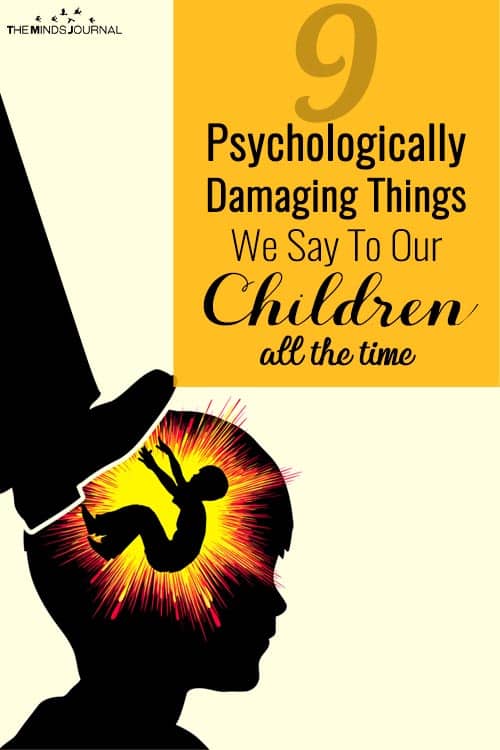
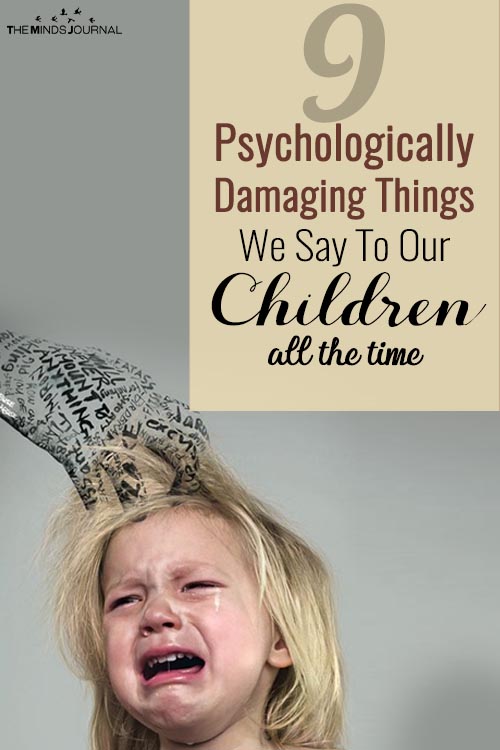

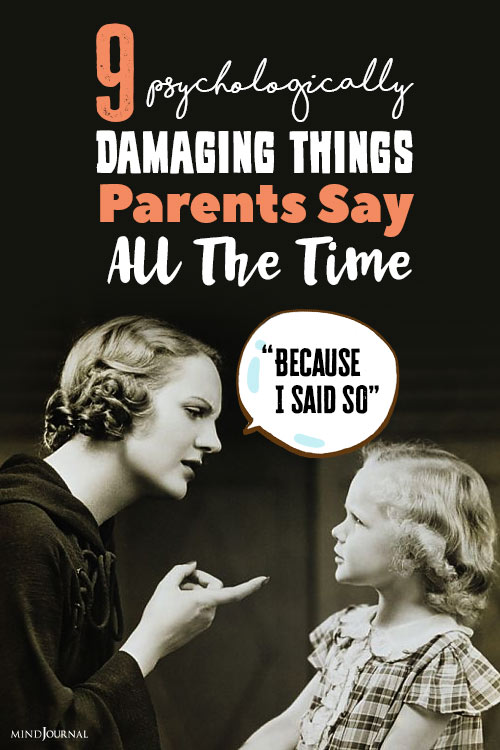









Leave a Reply